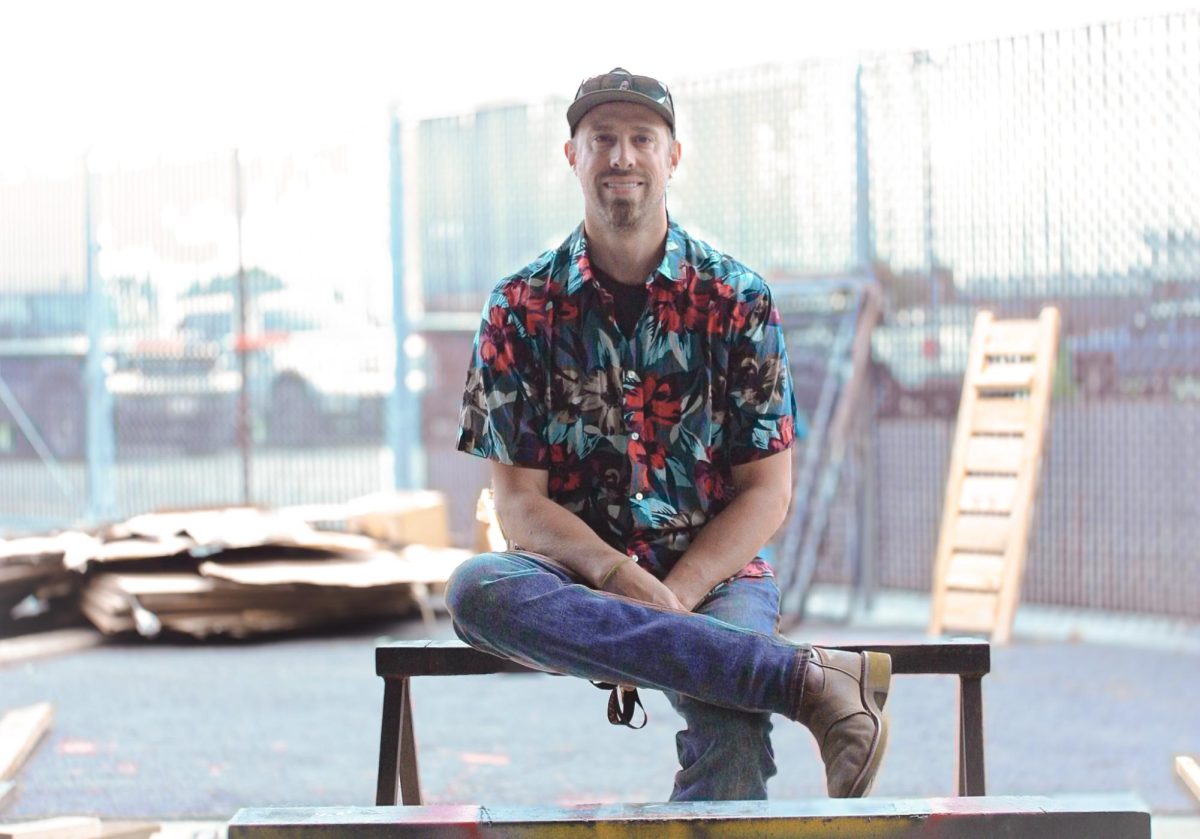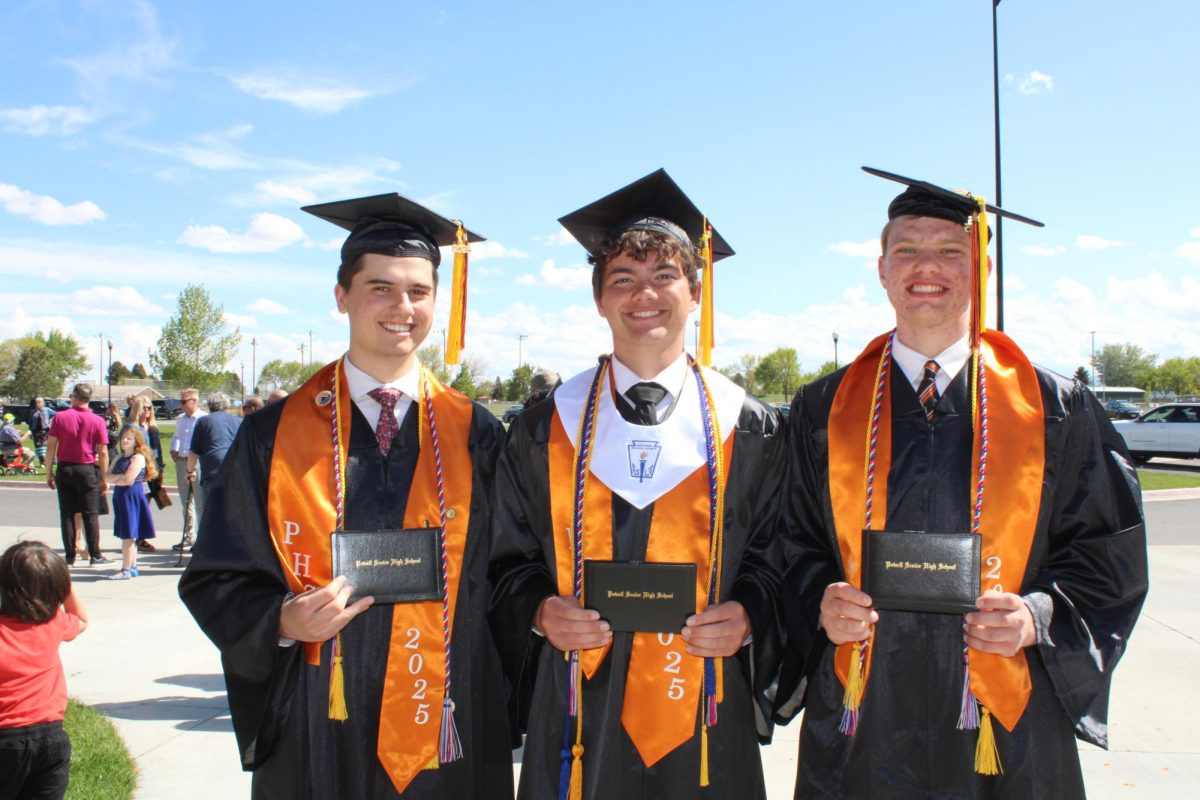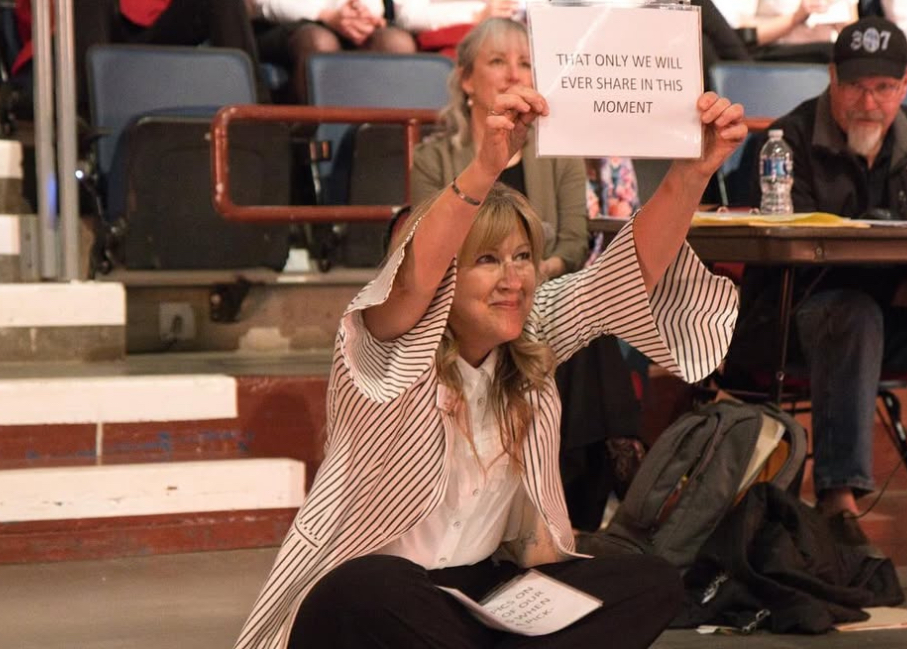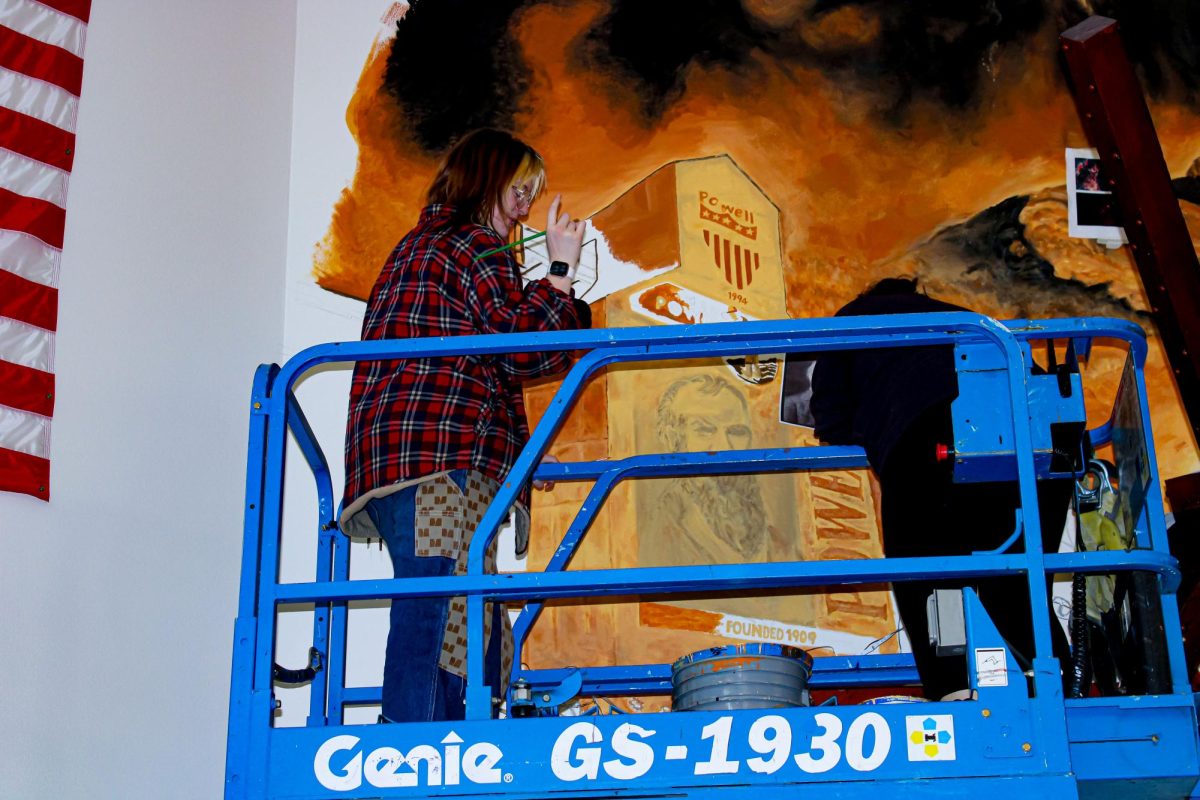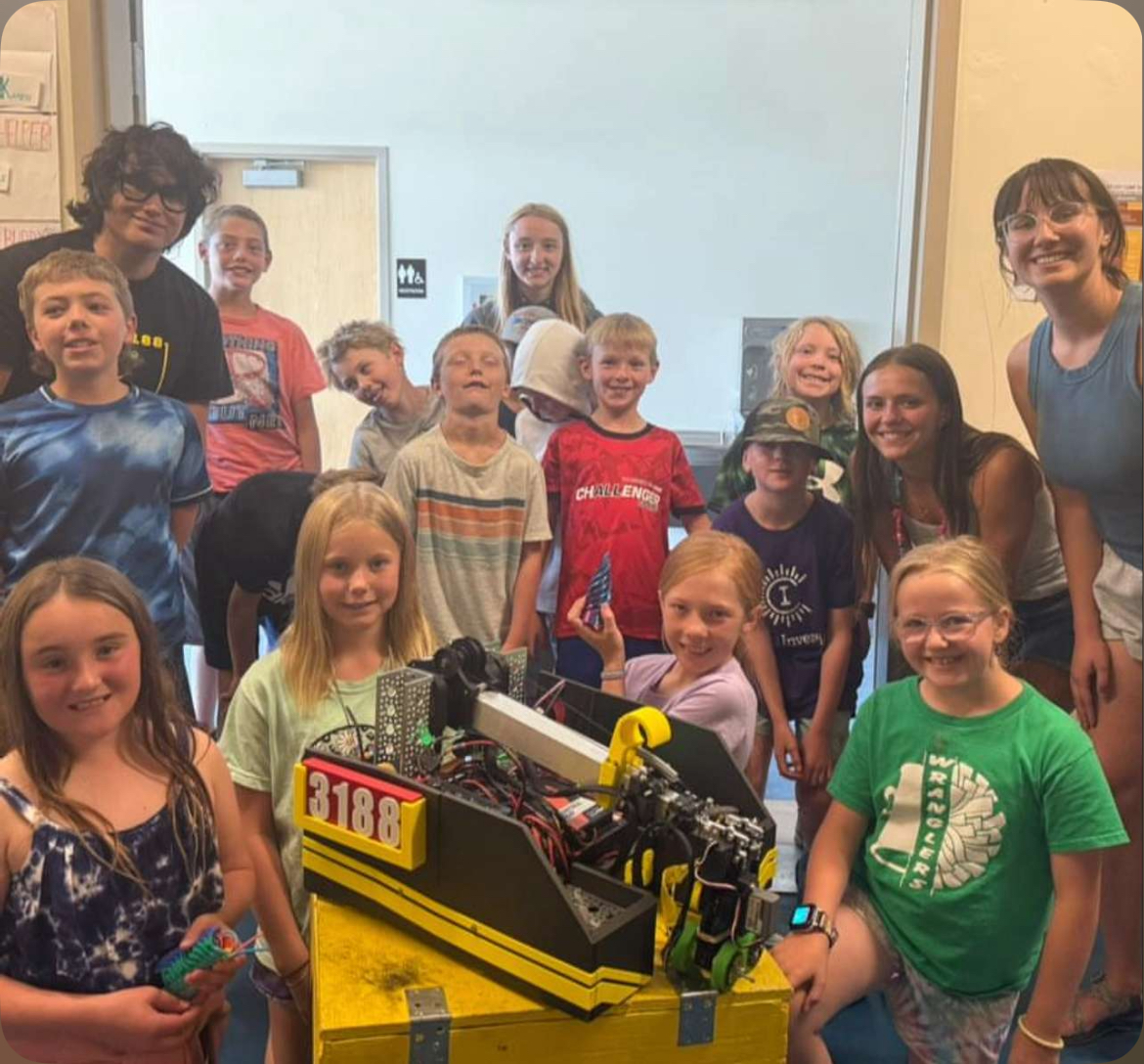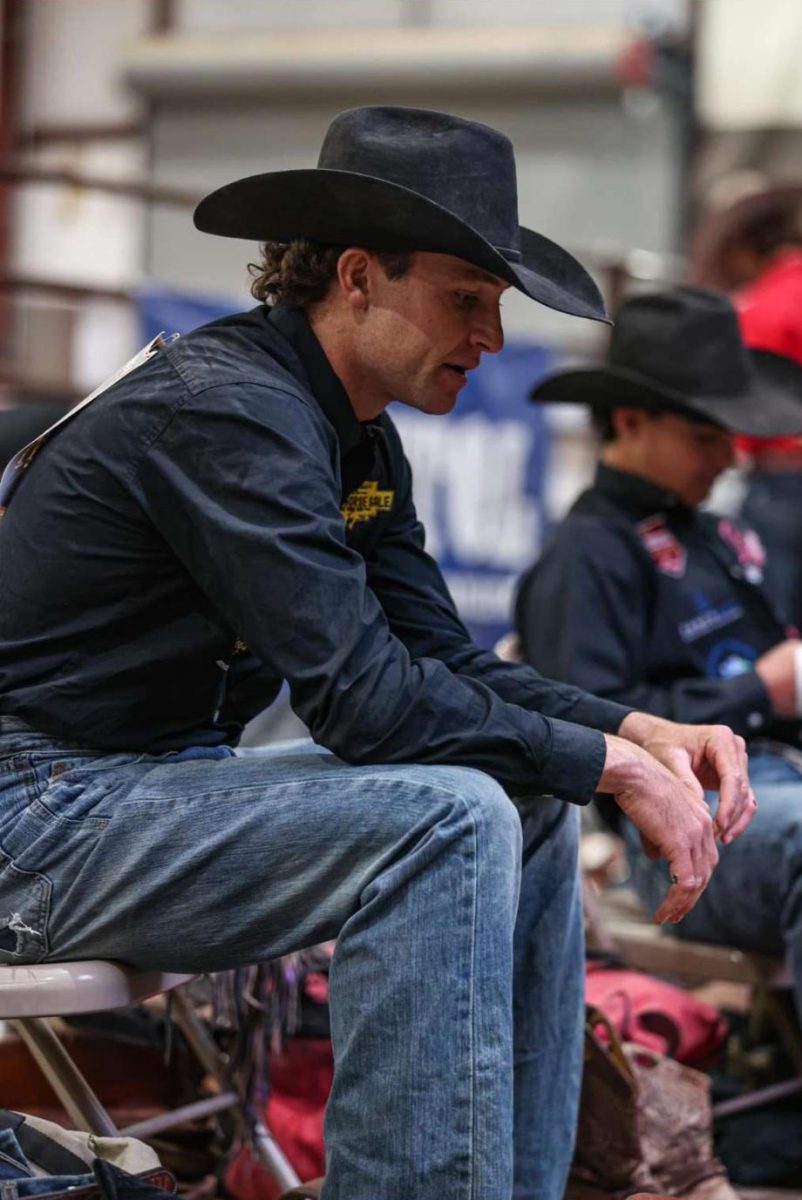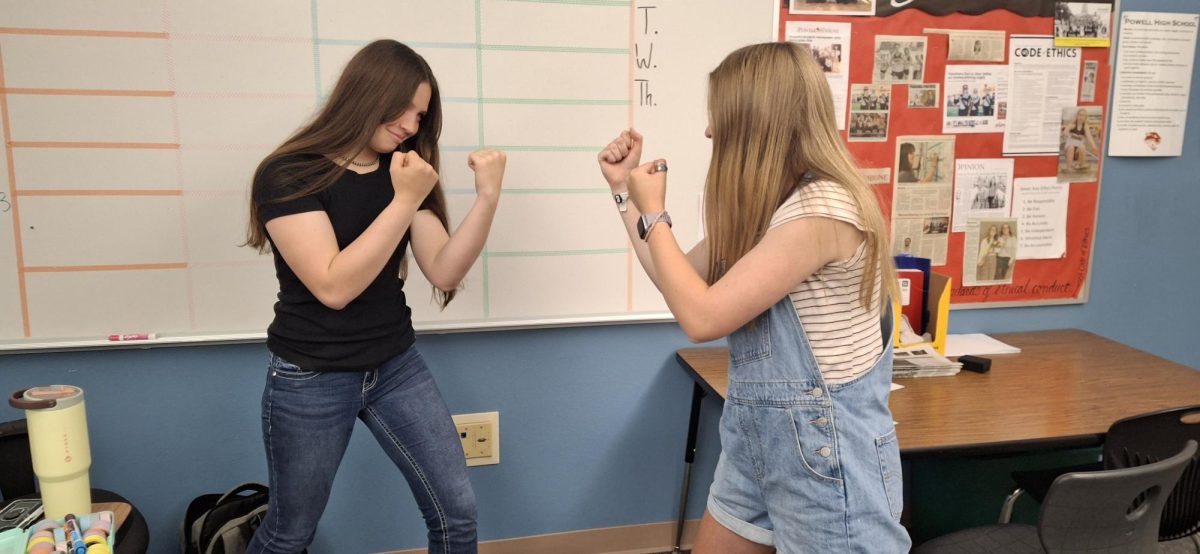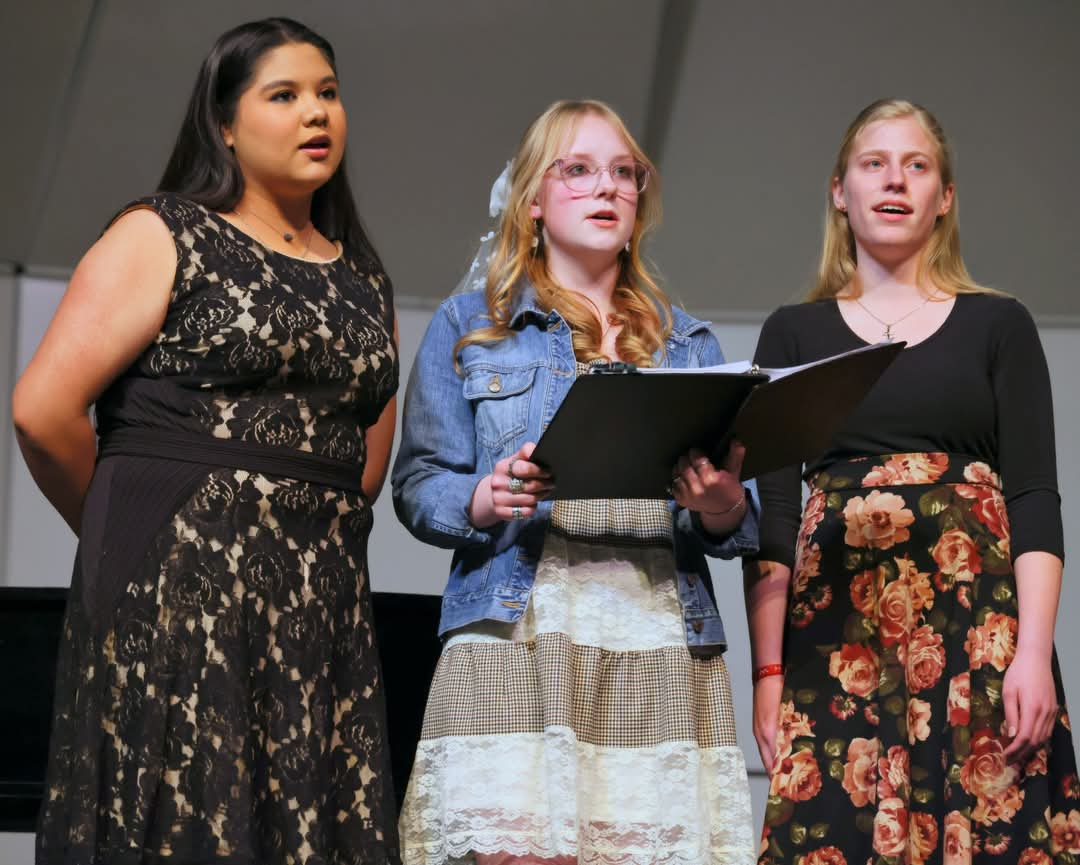Boeing, the world’s biggest plane manufacturing company, was created in 1916 in Seattle, Washington. 108 years after the company’s formation, the aviation conglomerate is seeing harsh pushback from people across the globe and at Powell High School [PHS].
Now with 2024 coming to a close, what better time to look at the year-long nose-dive the manufacturing conglomerate has taken? [No pun intended].
“I know it’s not exactly the best of things that have happened,” senior Kenan Lind said. “It’s definitely pretty serious, [Boeing is] definitely not doing what they’re supposed to.”
Tensions ramped up in the spring of this year after numerous reports of the faulty construction on Boeing planes surfaced on the internet.
One video that saw widespread viewership showcased a door on an Alaskan Airlines flight being blown off of its hinges mid-flight, causing a sudden loss of cabin pressure as people clambered to their seats.
“[Boeing] just can’t do the simplest things to make [their planes] safe [and] good for everyone else,” Lind said. “It’s definitely not that complicated, and they totally have the money and everything, but [Boeing is] just corrupt and all that stuff so they don’t.”
A lot of Boeing’s major problems they are being faced with come down to the manufacturing of the planes themselves at factories.
After reports and video evidence surfaced pertaining to doors falling off mid flight, investigations were launched by the Federal Aviation Administration [FAA]. One of the findings found evidence that Dawn soap, commonly used for cleaning dishes, was being used as lubricant on the doors.
“Dawn dish soap is for the ducks. They put that on the ducks,” junior Elias Brower said. “I’m not flying on Boeing. The Dawn dish soap might make the doors smell nice but I’d rather be on a stinky flight rather than an unsafe flight.”
In March of this year Boeing whistleblower John Barnett was shot and killed a day before testifying in court against the company he once worked for, with officials believing his death to be linked to “suicide.”
Barnett wasn’t the only whistleblower to face that fate, with Joshua Dean, a former quality auditor for Boeing, committing suicide just two months later. Both were reported to be healthy at the time of their deaths.
“I know a guy that used to work for Boeing, and he was an engineer,” junior Brighton Streeter said. “He always talks about all of the stuff that they had to go over and double check and stuff like that… One thing that I was reading about is how Boeing is focusing now less on the engineering and quality of their products, and more on cost reductions. I feel like [that] might be part of the reason we’re seeing so many failures in the Starliner and even in their New 737 Max planes.”
Reductions in engineering costs aim to help boost revenue a company sees when consumers purchase a product. That principle carries over to Boeing’s manufacturing level, but at a cost it seems, as it puts flyers at a greater risk when travelling.
“Obviously, cost reduction is something that’s important,” Streeter said. “But as far as these things, where safety becomes a factor, I think that engineering quality is a much higher priority cost of your products.”
More recently Boeing partnered with the National Aeronautics and Space Administration [NASA] to put two astronauts, Butch Wilmore and Suni Williams, into space on their all-new “Starliner” rocket.
The rocket was supposed to return to Earth in mid-June, only a week after its initial launch. The return home was swiftly cut short however when reports of thruster trouble and loss of helium on the shuttle came in, leaving Wilmore and Williams up in space.
The shuttle returned in early September, but with no astronauts. NASA, fearing that the reentry of the Starliner would be too risky, left both astronauts on the International Space Station [ISS]. Wilmore and Williams are set to return on a Space X rocket in February of next year.
“I think that’s kind of atrocious,” Streeter said. “Personally, if I were an astronaut thinking that I was only going to be in space for ten days and then ending up being there for eight months, I would be a little bit upset, and I know for sure that my family would also be a little upset, because, you’re going to be missing out on all sorts of holidays and stuff like that. So I think that’s kind of a big deal.”
With all this being said, the general consensus from PHS students is that Boeing needs to make changes.
“I’d rather be on a stinky lubricant flight than a door falling off ‘I’m dead’ flight,” Brower said.
It’s become apparent that Boeing has found itself in controversy. Whatever side someone may fall on, it can be seen that the company needs to make a change to better their public perception.
“[If I were Boeing I’d] step back a little bit and work on what you’re supposed to,” Lind said. “Don’t try to skip ends. Confess to whatever [Boeing] did.”




